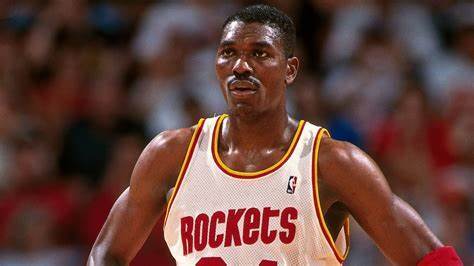Hakeem Olajuwon might be an inspiration for the majority of the marquee centers playing in the modern-day NBA. Given that this Houston Rockets could potentially be the greatest ever player to have represented the franchise, Olajuwon made a huge revelation as he revealed how he ever thought about playing a Center in the NBA.

Olajuwon is one of those old-school big men, who truly believe that every beast should use their strength and score in a manner in which they are most natural. This was the same reason why Hakeem went on to condemn Philadelphia 76ers star Joel Embiid for shooting tons of 3-pointers in a game.
On the same note, Olajuwon also applauded Nikola Jokic for being the ideal big man of the modern-day NBA as the Denver Nuggets star always uses his strength to register big numbers on the scoreboard.
Hakeem Olajuwon makes sensational revelation
During an interview with Chris Ballard of Sports Illustrated, the 2-time NBA Champion explained how he would enjoy the freedom to play on the NBA hardwood, being away from the paint.
“Then Olajuwon says something even more surprising—something that makes me pause: “I never really liked being a center.” In fact, Olajuwon says he totally understands why the game turned out the way it did. “The traditional big-man game is boring!” he says. “I didn’t want to play center. I wanted to handle the ball like guards. When I played in the summertime, I got the rebound and I didn’t want to pass to the guard. I’m bringing it down! I’m freelancing! That’s more fun. You’re more engaged in the game.”
Also Read: “Gonna be having another parade” – Shaq explains why Giannis’ Milwaukee could be NBA Champions again

